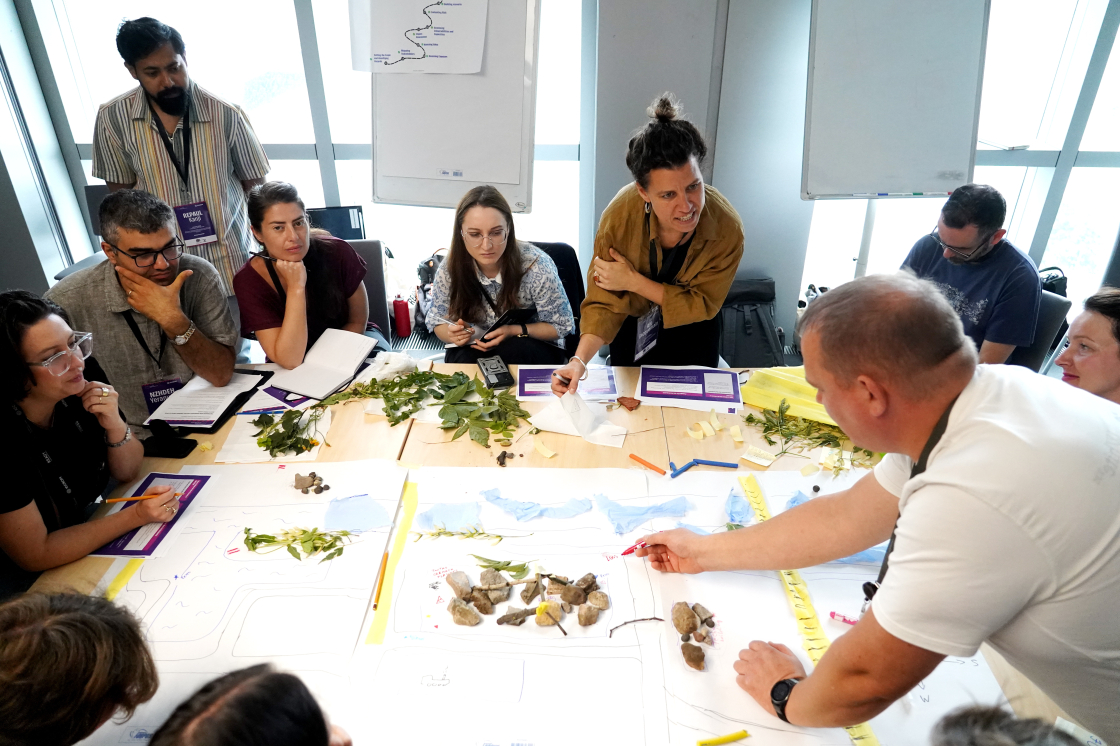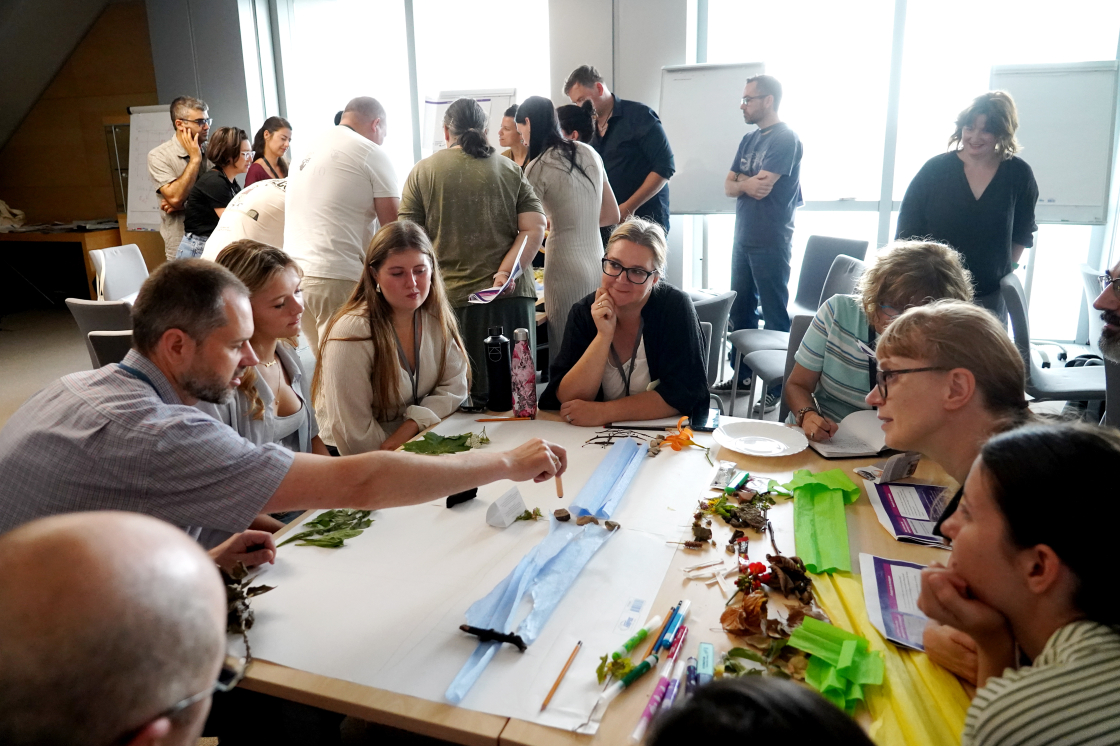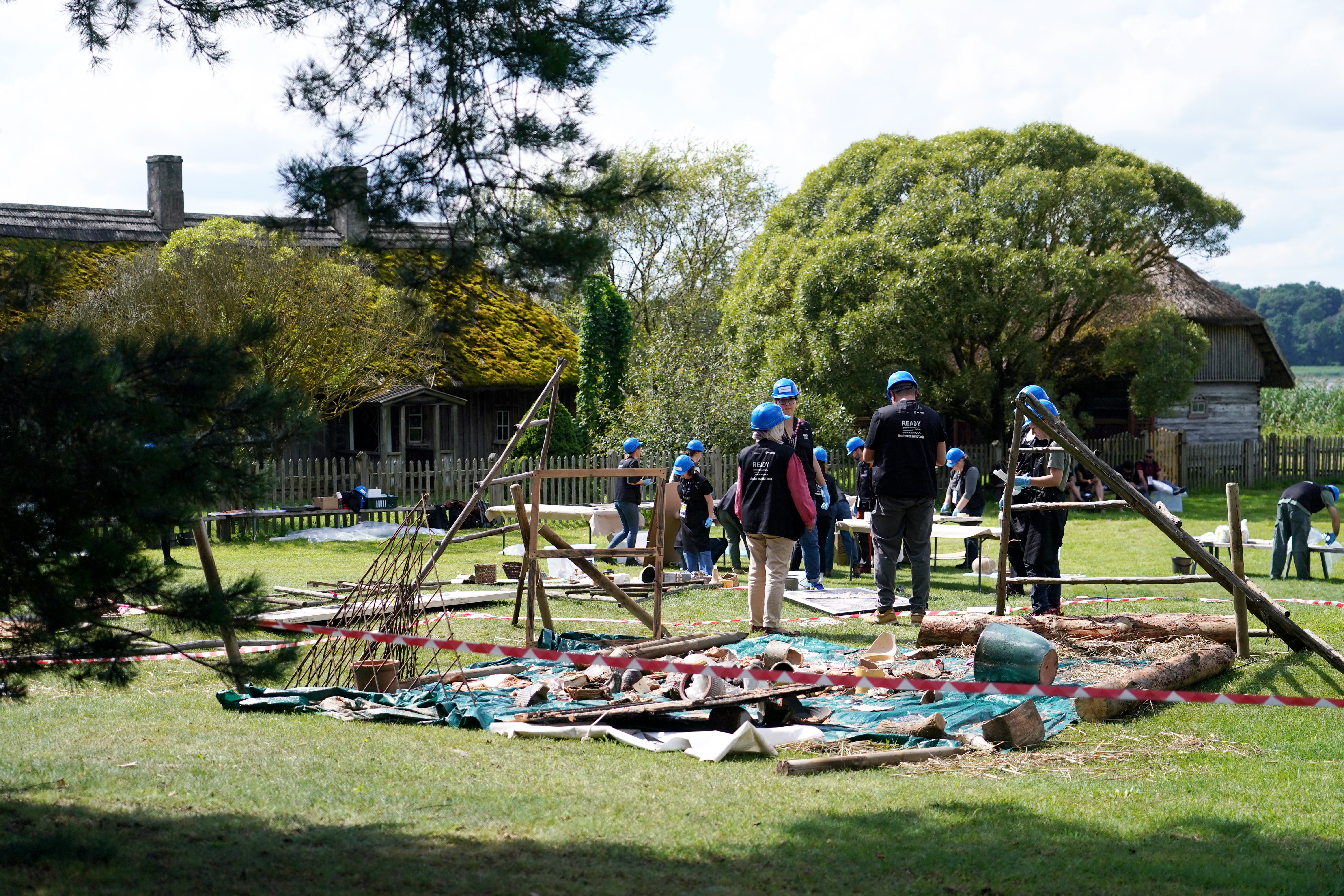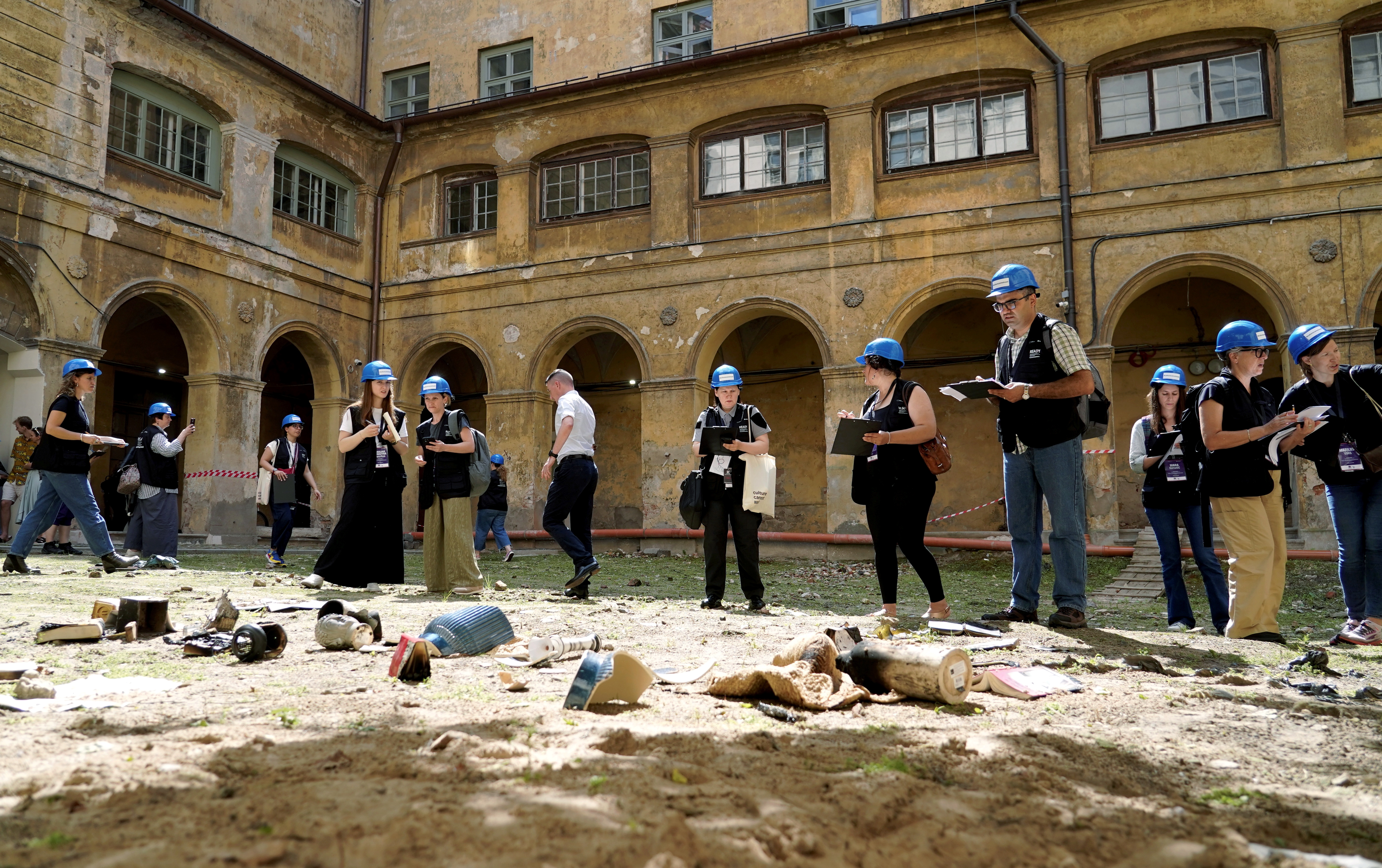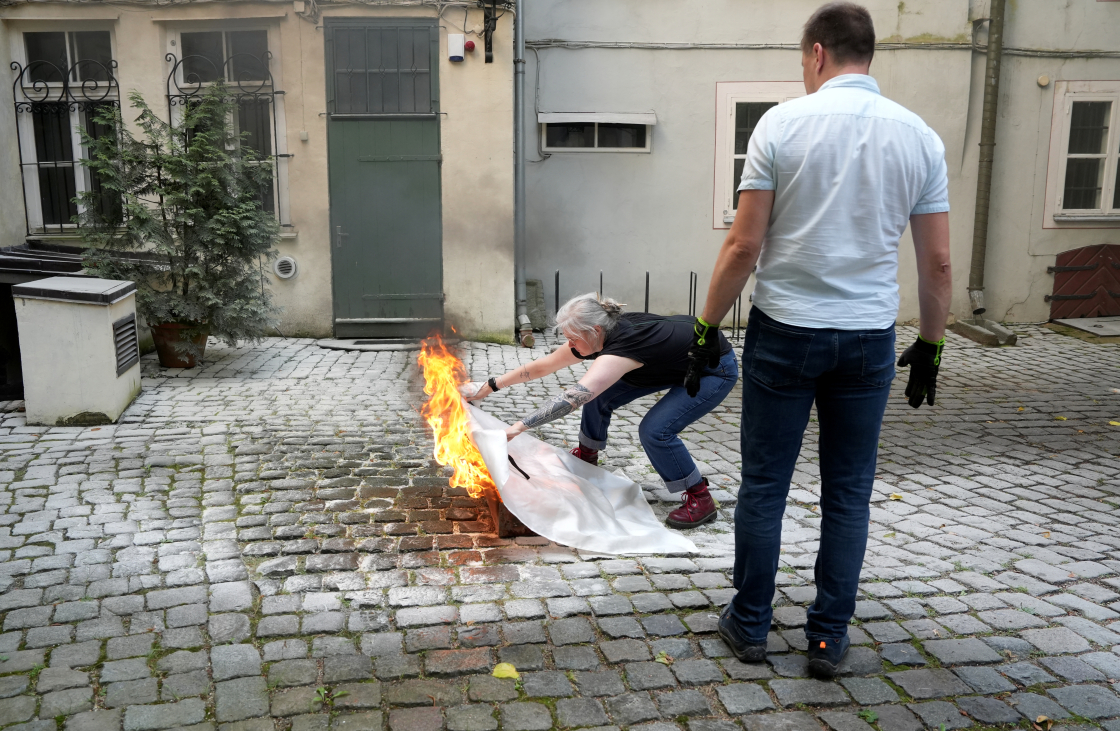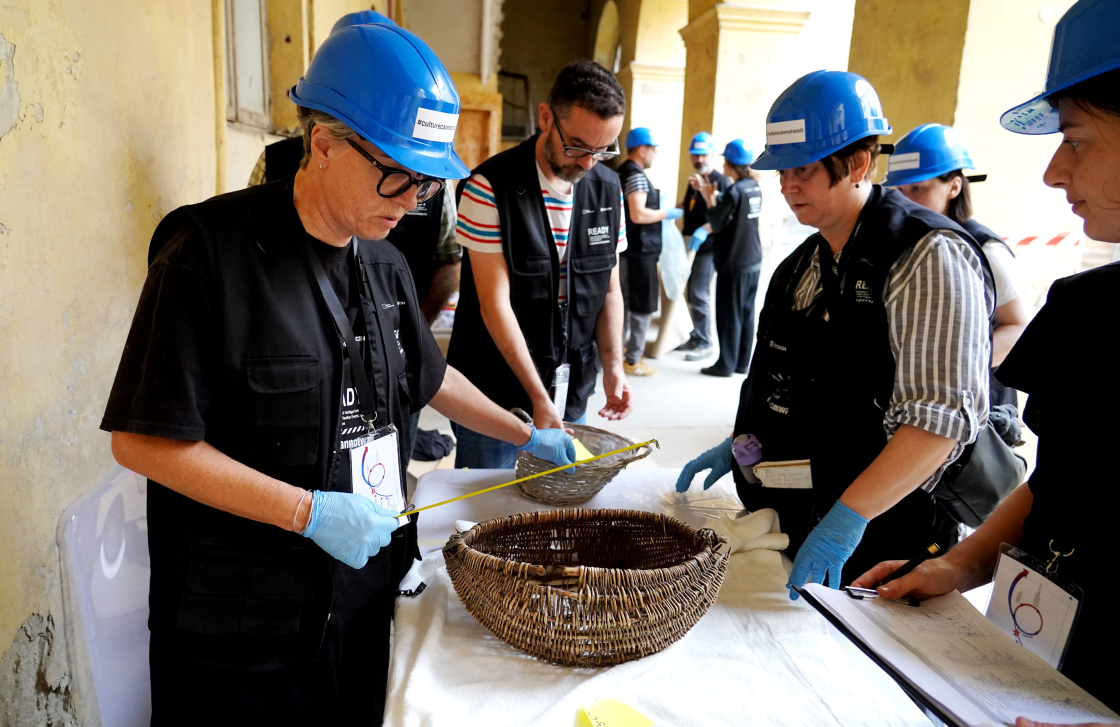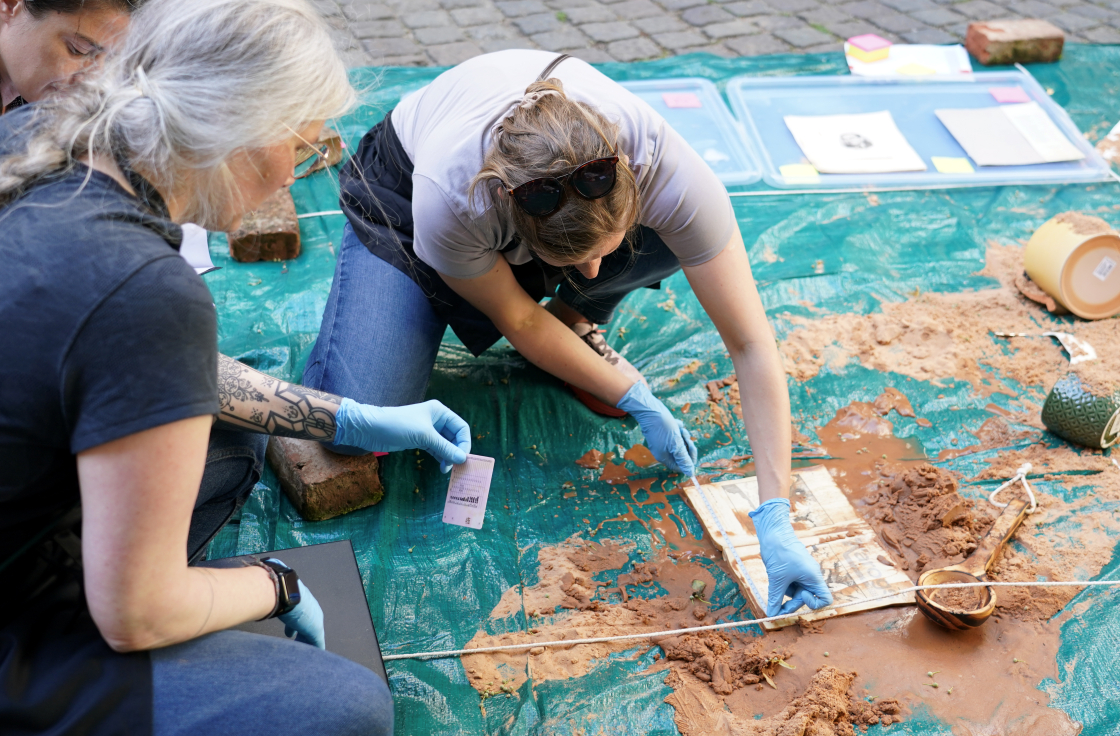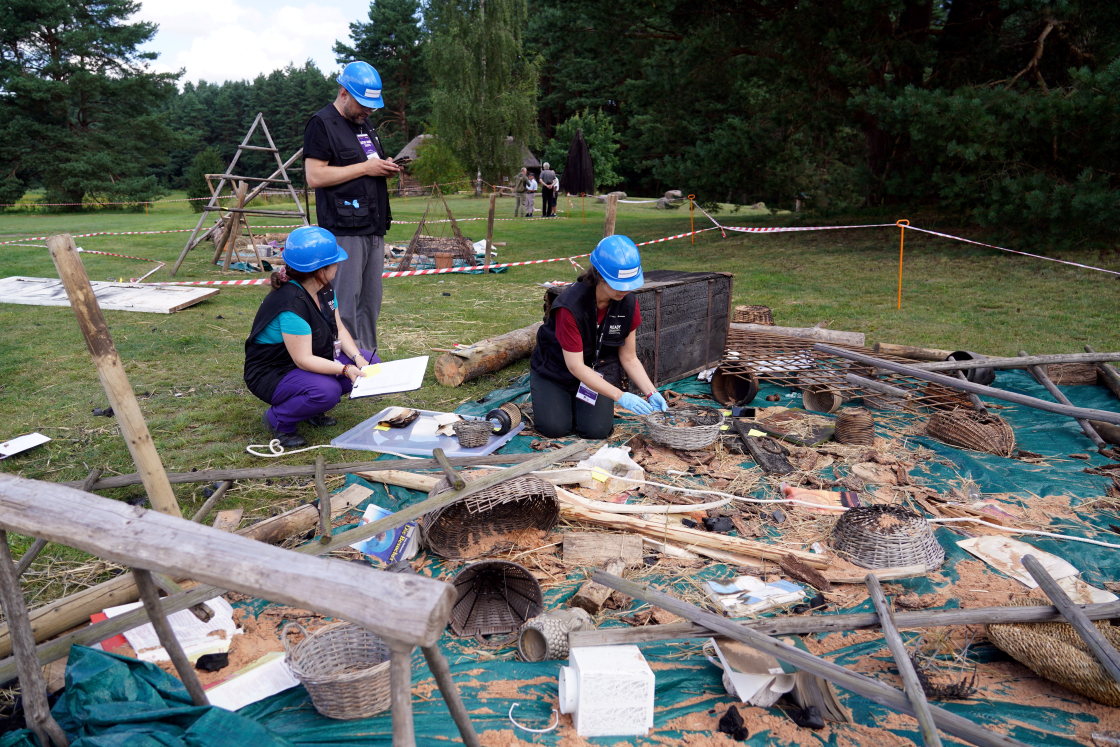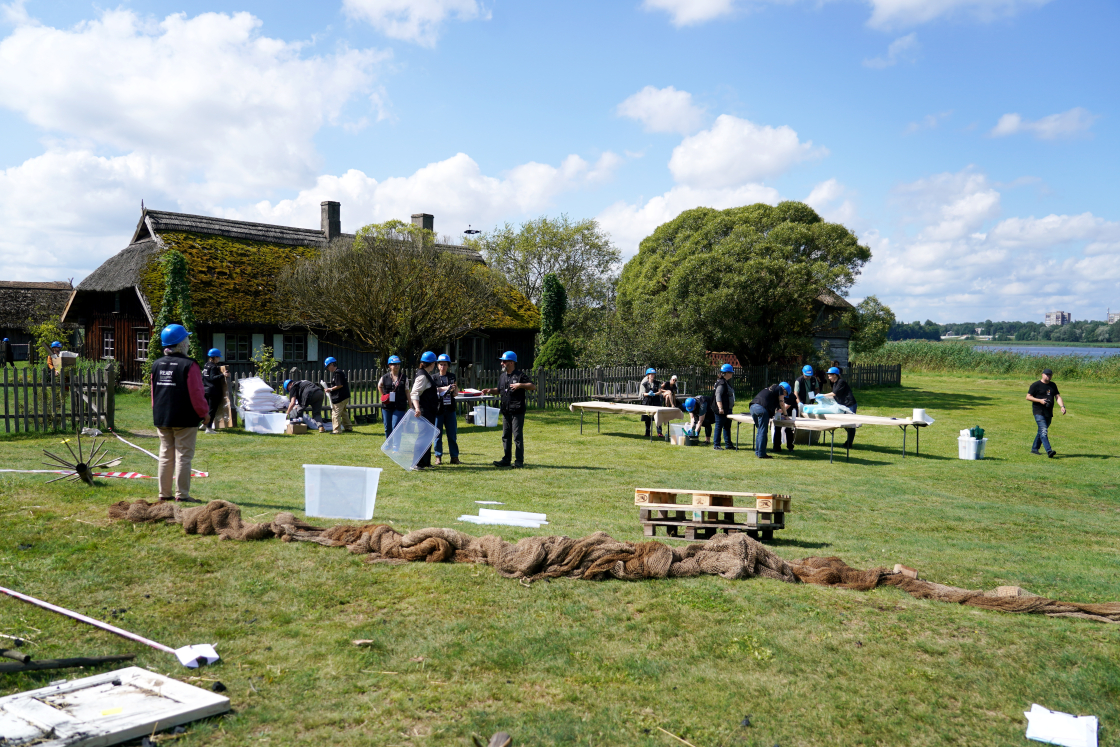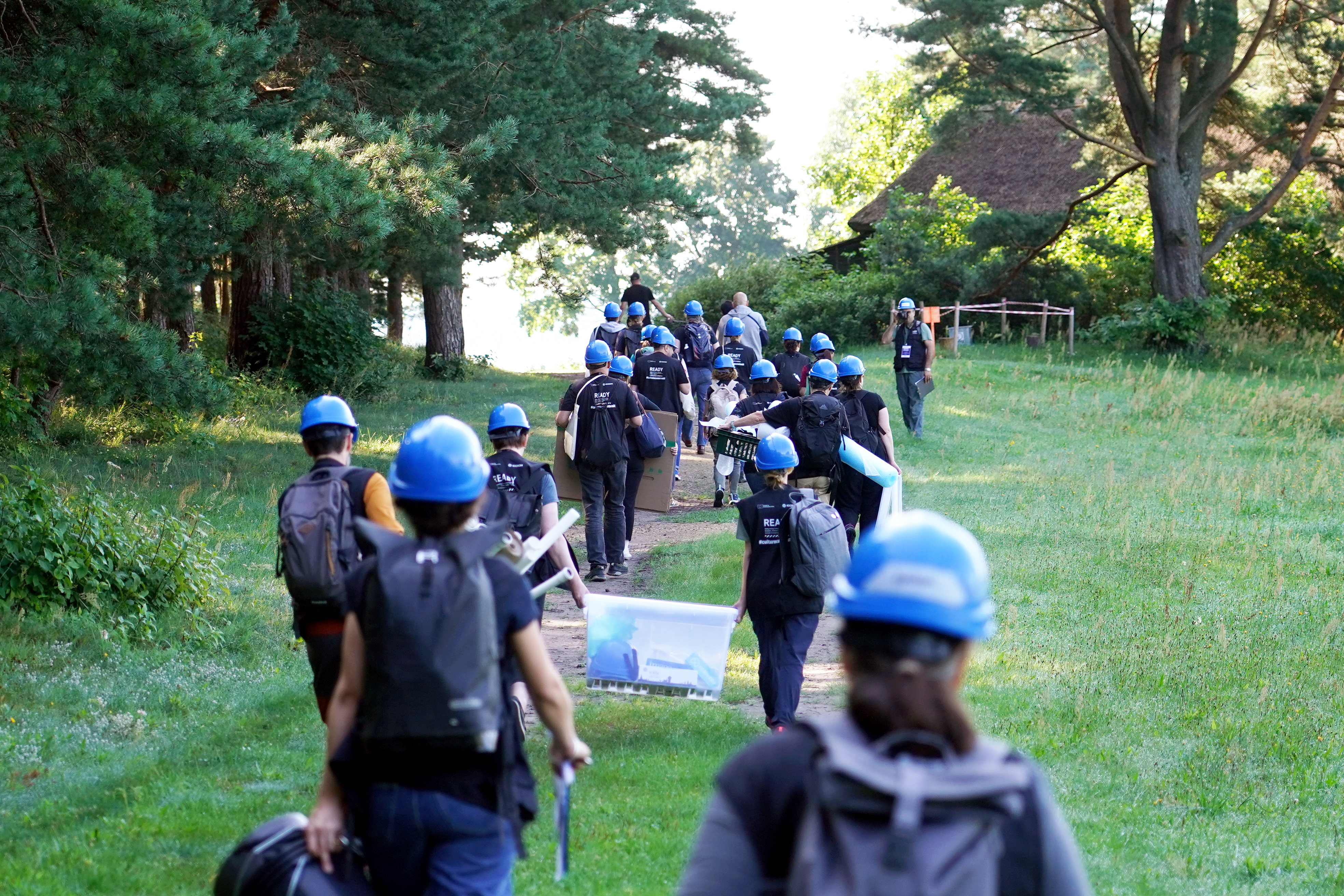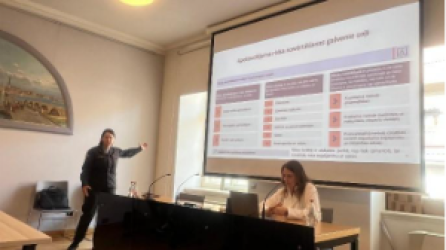Riga, 2 August 2025 – Phase 2 of the training programme READY Track 1: Safeguarding Heritage Collections, Living Traditions and Practices in the face of Disasters, Extreme Weather Events and Complex Emergencies concludes with a major cross-sector simulation, equipping 25 professionals from 20 countries with practical skills and tools to protect cultural heritage during crises.
Hosted by the Ministry of Culture of Latvia and supported by the European Commission’s Directorate-General for Education, Youth, Culture and Sport and its Creative Europe programme, ICCROM’s flagship First Aid and Resilience for Cultural Heritage in Times of Crisis (FAR) programme – together with 18 technical partners from 13 countries – has successfully trained Europe’s first regional cohort of Cultural First Aiders.
A Unique Systems-Based Approach
READY Track 1 was built as an interdisciplinary, practice-oriented experience tailored to today’s polycrisis reality – where overlapping hazards, including armed conflict, extreme weather events, and cascading systemic risks, threaten both people and heritage. Led by the FAR programme team, the training combined four weeks of online foundational learning (16 June–9 July) with two weeks of intensive, in-person training in Riga (21 July – 2 August).
The training programme drew on FAR’s field-tested methodology and internationally recognized tools. These included the First Aid to Cultural Heritage in Times of Crisis Handbook and Toolkit (aligned with international standards), PATH – Peacebuilding Assessment Tool for Heritage Recovery and Rehabilitation, the Community-Based Heritage Indicators for Peace, and inSIGHT, a participatory game that strengthens disaster risk governance.
In Their Own Words - Participant Reflections
In search of ways to make my institution and the wider cultural landscape more resilient to disasters, I discovered the READY Track 1 course system. The knowledge, tools, and insights shared by ICCROM-FAR and all partners gave us clear direction on tasks like risk assessment and early recovery of affected cultural heritage. The materials and training methods developed by ICCROM-FAR are based on real experience and enable us to move forward in a structured, informed way. The connections formed among participants and lecturers will support us as we work toward a more resilient and connected cultural sector across Europe. With climate change and political instability on our doorstep, this training is more important than ever.
The READY project and training were a great opportunity to broaden our perspective on cultural heritage preservation and learn about international experiences. In Latvia, this course helped to activate the creation of a cooperation network and the restoration of broken ties to further advance civil protection and heritage safeguarding. The results of the READY project will live on long after its activities, because #culturecannotwait.
Pioneering Tools to Bridge Gaps in Safeguarding Intangible Cultural Heritage
A dedicated module addressed disaster risk assessment and management for intangible cultural heritage (ICH). Working with cultural bearers from the Upīte community near Latvia’s border – singers, dancers and weavers – participants undertook a digital walk, recorded oral histories, and practiced conflict- and trauma-sensitive interviewing. Role-play scenarios mirrored field conditions, enabling them to use heritage as a resource for coping and psychological first aid while assessing potential losses and protective capacities. Peacebuilding tools were integrated into preparedness, response and recovery strategies to foster social cohesion.
Through real-world case studies and practical exercises, participants also:
- Conducted disaster risk assessments for the National Library of Latvia and the community.
- Developed emergency evacuation and salvage plans.
- Practiced stabilization and packing for movable heritage.
- Documented oral histories to safeguard living traditions.
- Undertook targeted drills in basic firefighting, personal safety and first aid to ensure safe, coordinated operations with responders.
The course was delivered by a multidisciplinary teaching team – including FAR alumni and experts in civil protection, firefighting, climate science, and peacebuilding – fostering cross-sector cooperation and community-centred approaches to build the skills for managing complex risks to heritage before, during, and after crises.
Final Simulation – Responding to a Multi-Hazard Crisis
The READY training culminated in a two-day, full-scale field simulation at the Ethnographic Open-Air Museum of Latvia, designed to mirror the operational realities of safeguarding cultural heritage during complex emergencies. Participants deployed as Cultural First Aiders responded to a scenario in which armed conflict and a rapidly spreading wildfire threatened the museum’s ethnographic houses and collections. The situation was further complicated by flooding, cascading hazards, and restricted access – testing participants’ ability to make rapid, risk-informed decisions under pressure.
Facilitated by the READY course team in partnership with the Ministry of Culture of Latvia, the Latvian National Armed Forces, the Riga Fire and Rescue Service, and the museum’s staff, the simulation unfolded in two phases: a tabletop exercise for situation analysis, followed by a guided on-site operation. Participants carried out damage and risk assessments, applied cultural first aid to movable heritage and living traditions, developed emergency evacuation and stabilization measures, and established a temporary storage facility – successfully evacuating over 300 objects to a safe on-site location.
This culminating exercise consolidated the tools, methods, and skills gained during the course and demonstrated how coordinated preparedness and first aid can reduce risks to heritage and support resilience during disasters, extreme weather events, and armed conflicts.
What’s Next – From Training to Field Action
With READY Track 1 complete, participants have returned to their home countries to begin implementing six-month field projects that will strengthen disaster preparedness and resilience for cultural heritage at local and national levels.
At the close of the in-person training, each participant presented their project before a jury of multidisciplinary experts from across Europe. Initiatives range from training local emergency responders and safeguarding intangible heritage to developing national emergency protocols. These projects will be supported through distance mentoring by ICCROM-FAR and project partners.
In early 2026, an international forum will share collective results of all field projects – featuring success stories, lessons learnt, and evidence-based recommendations and practical models to integrate cultural heritage protection into disaster risk management and climate adaptation strategies across Europe and beyond.
Latvian Trainees Cascade Knowledge Nationally
Demonstrating READY’s immediate impact, Latvian participants, Sanita Dubra from the National Library of Latvia and Agrita Vitola from the Fire and Rescue Services, have already begun cascading their training nationally. On 4 and 5 August, they launched workshops with professionals and Ministry of Culture staff, ensuring that knowledge and skills gained in Riga are quickly embedded in institutions responsible for safeguarding Latvia’s cultural heritage.
#culturecannotwait

